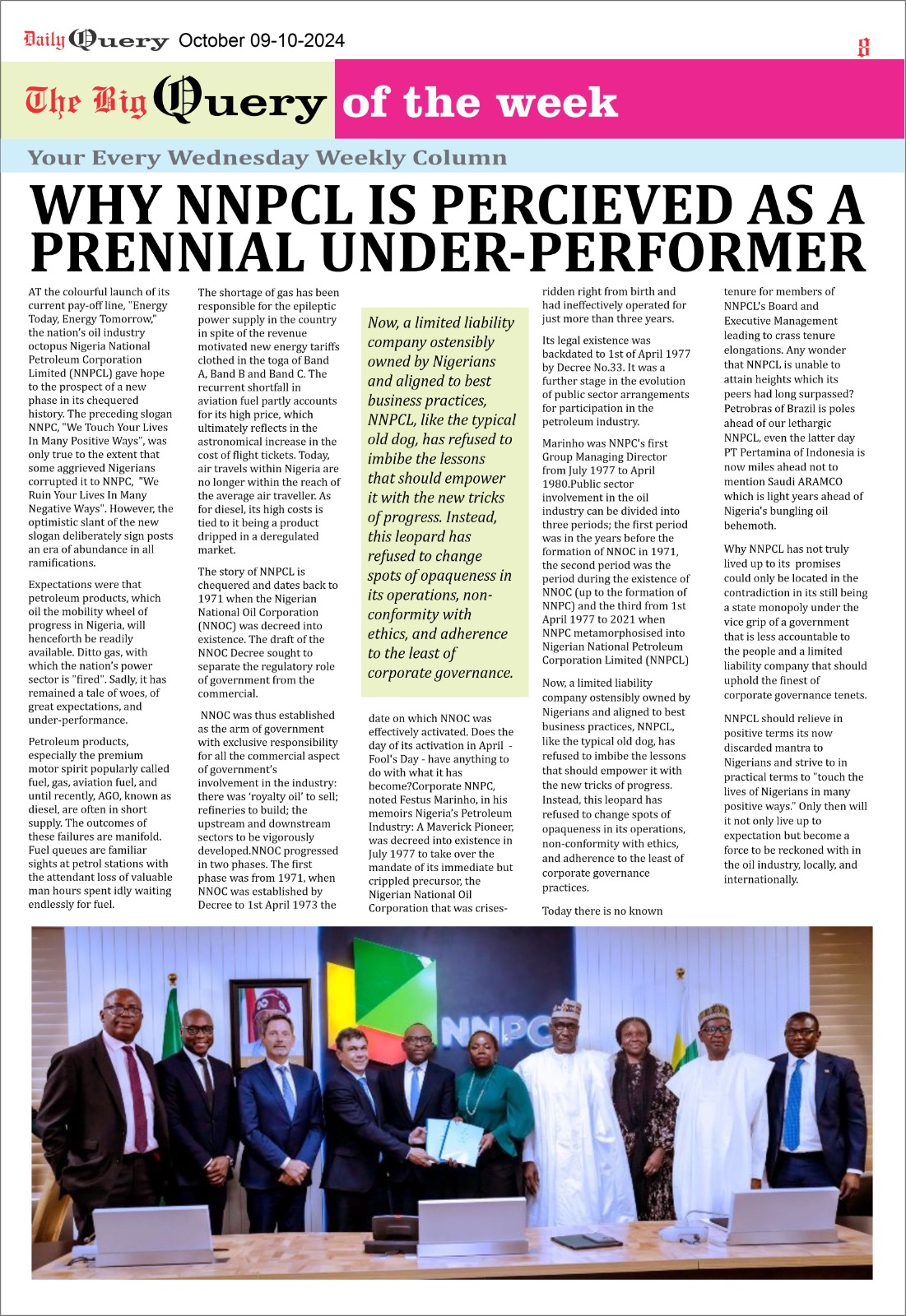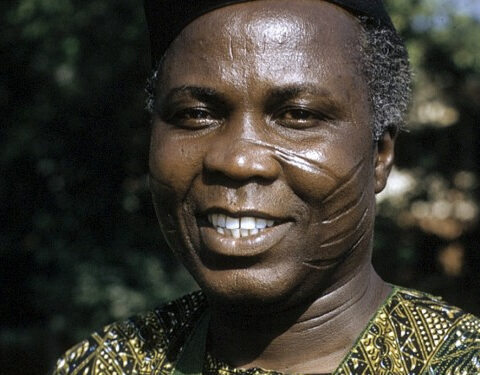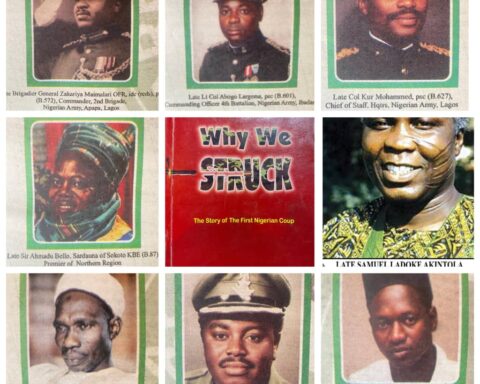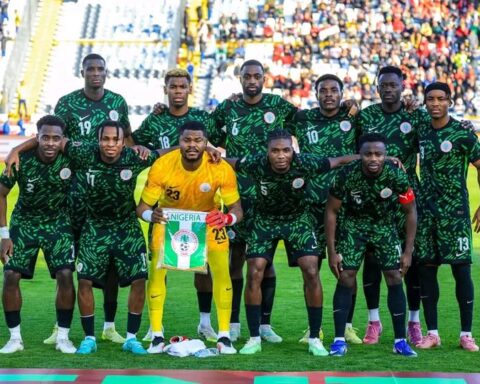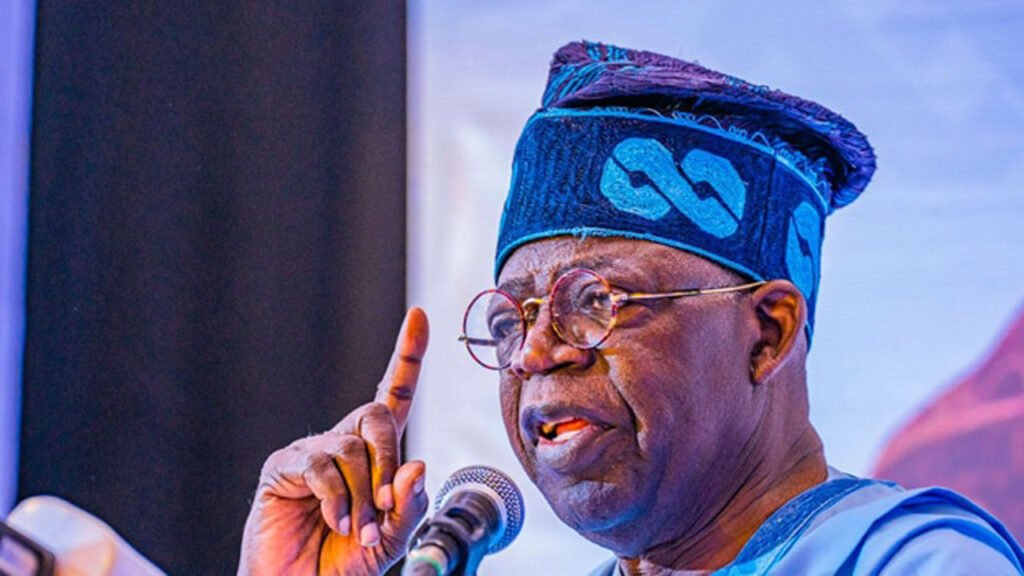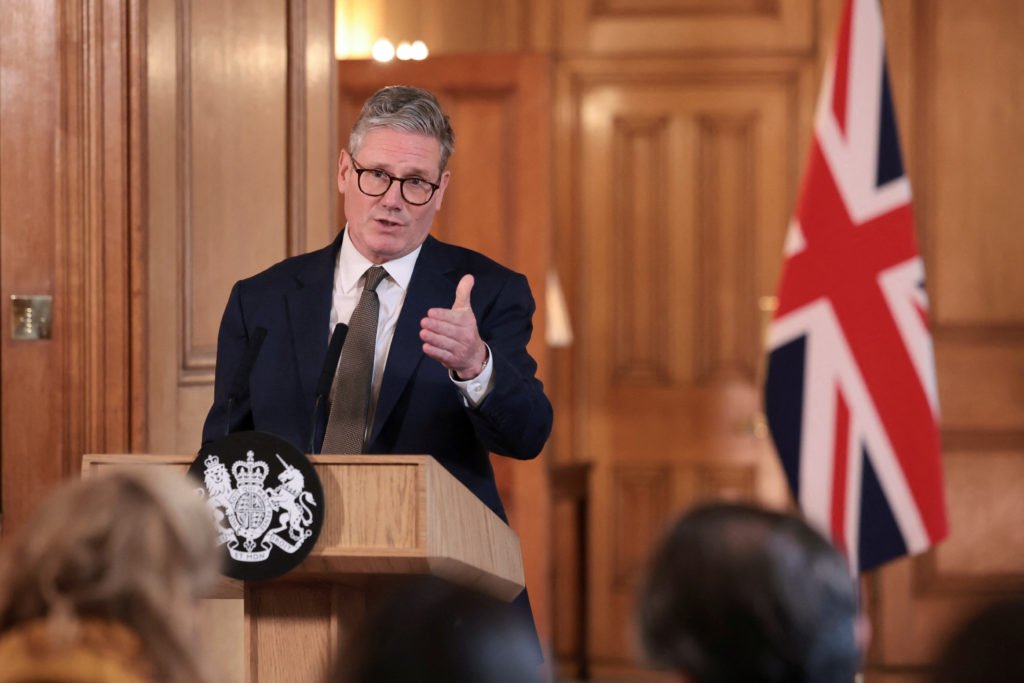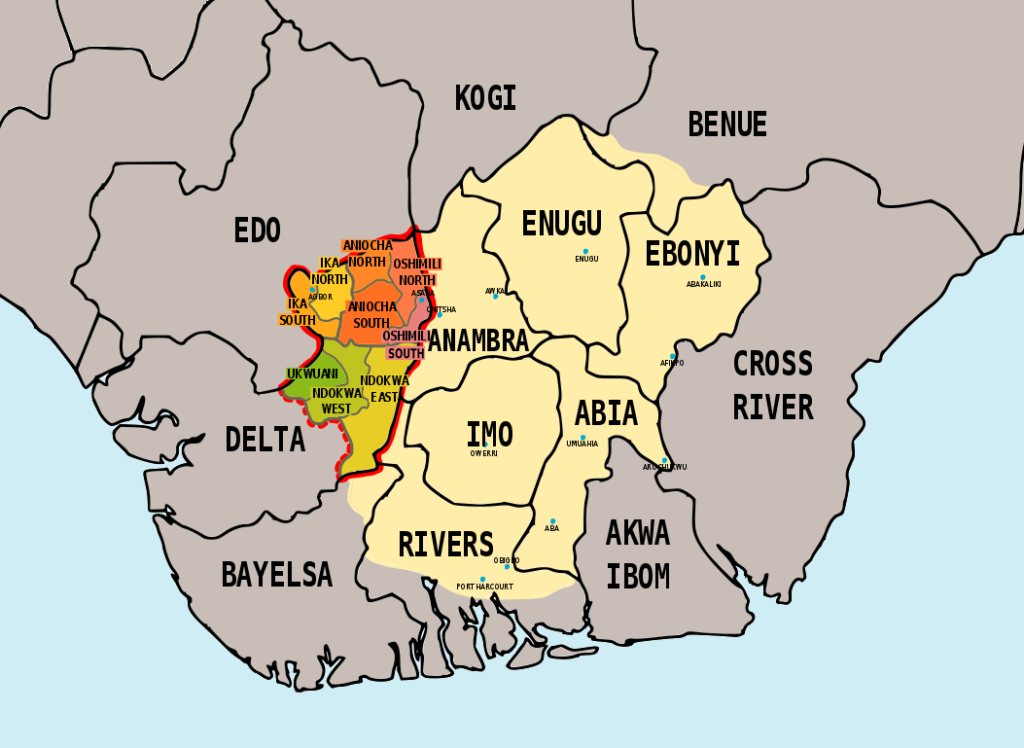AT the colourful launch of its current pay-off line, “Energy Today, Energy Tomorrow,” the nation’s oil industry octopus Nigeria National Petroleum Corporation Limited (NNPCL) gave hope to the prospect of a new phase in its chequered history.
The preceding slogan NNPC, “We Touch Your Lives In Many Positive Ways”, was only true to the extent that some aggrieved Nigerians corrupted it to NNPC, “We Ruin Your Lives In Many Negative Ways”. However, the optimistic slant of the new slogan deliberately sign posts an era of abundance in all ramifications. Expectations were that petroleum products, which oil the mobility wheel of progress in Nigeria, will henceforth be readily available. Ditto gas, with which the nation’s power sector is “fired”. Sadly, it has remained a tale of woes, of great expectations, and under-performance.
Petroleum products, especially the premium motor spirit popularly called fuel, gas, aviation fuel, and until recently, AGO, known as diesel, are often in short supply. The outcomes of these failures are manifold. Fuel queues are familiar sights at petrol stations with the attendant loss of valuable man hours spent idly waiting endlessly for fuel. The shortage of gas has been responsible for the epileptic power supply in the country in spite of the revenue motivated new energy tariffs clothed in the toga of Band A, Band B and Band C. The recurrent shortfall in aviation fuel partly accounts for its high price, which ultimately reflects in the astronomical increase in the cost of flight tickets. Today, air travels within Nigeria are no longer within the reach of the average air traveller. As for diesel, its high costs is tied to it being a product dripped in a deregulated market.
The story of NNPCL is chequered and dates back to 1971 when the Nigerian National Oil Corporation (NNOC) was decreed into existence. The draft of the NNOC Decree sought to separate the regulatory role of government from the commercial. NNOC was thus established as the arm of government with exclusive responsibility for all the commercial aspect of government’s involvement in the industry: there was ‘royalty oil’ to sell; refineries to build; the upstream and downstream sectors to be vigorously developed.
NNOC progressed in two phases. The first phase was from 1971, when NNOC was established by Decree to 1st April 1973 the date on which NNOC was effectively activated. Does the day of its activation in April – Fool’s Day – have anything to do with what it has become?
Corporate NNPC, noted Festus Marinho, in his memoirs Nigeria’s Petroleum Industry: A Maverick Pioneer, was decreed into existence in July 1977 to take over the mandate of its immediate but crippled precursor, the Nigerian National Oil Corporation that was crises-ridden right from birth and had ineffectively operated for just more than three years. Its legal existence was backdated to 1st of April 1977 by Decree No.33. It was a further stage in the evolution of public sector arrangements for participation in the petroleum industry. Marinho was NNPC’s first Group Managing Director from July 1977 to April 1980.
Public sector involvement in the oil industry can be divided into three periods; the first period was in the years before the formation of NNOC in 1971, the second period was the period during the existence of NNOC (up to the formation of NNPC) and the third from 1st April 1977 to 2021 when NNPC metamorphosised into Nigerian National Petroleum Corporation Limited (NNPCL).
Now, a limited liability company ostensibly owned by Nigerians and aligned to best business practices, NNPCL, like the typical old dog, has refused to imbibe the lessons that should empower it with the new tricks of progress. Instead, this leopard has refused to change spots of opaqueness in its operations, non-conformity with ethics, and adherence to the least of corporate governance practices. Today there is no known tenure for members of NNPCL’s Board and Executive Management leading to crass tenure elongations.
Any wonder that NNPCL is unable to attain heights which its peers had long surpassed? Petrobras of Brazil is poles ahead of our lethargic NNPCL, even the latter day PT Pertamina of Indonesia is now miles ahead not to mention Saudi ARAMCO which is light years ahead of Nigeria’s bungling oil behemoth.
Why NNPCL has not truly lived up to its promises could only be located in the contradiction in its still being a state monopoly under the vice grip of a government that is less accountable to the people and a limited liability company that should uphold the finest of corporate governance tenets.
NNPCL should relieve in positive terms its now discarded mantra to Nigerians and strive to in practical terms to “touch the lives of Nigerians in many positive ways.” Only then will it not only live up to expectation but become a force to be reckoned with in the oil industry, locally, and internationally.
